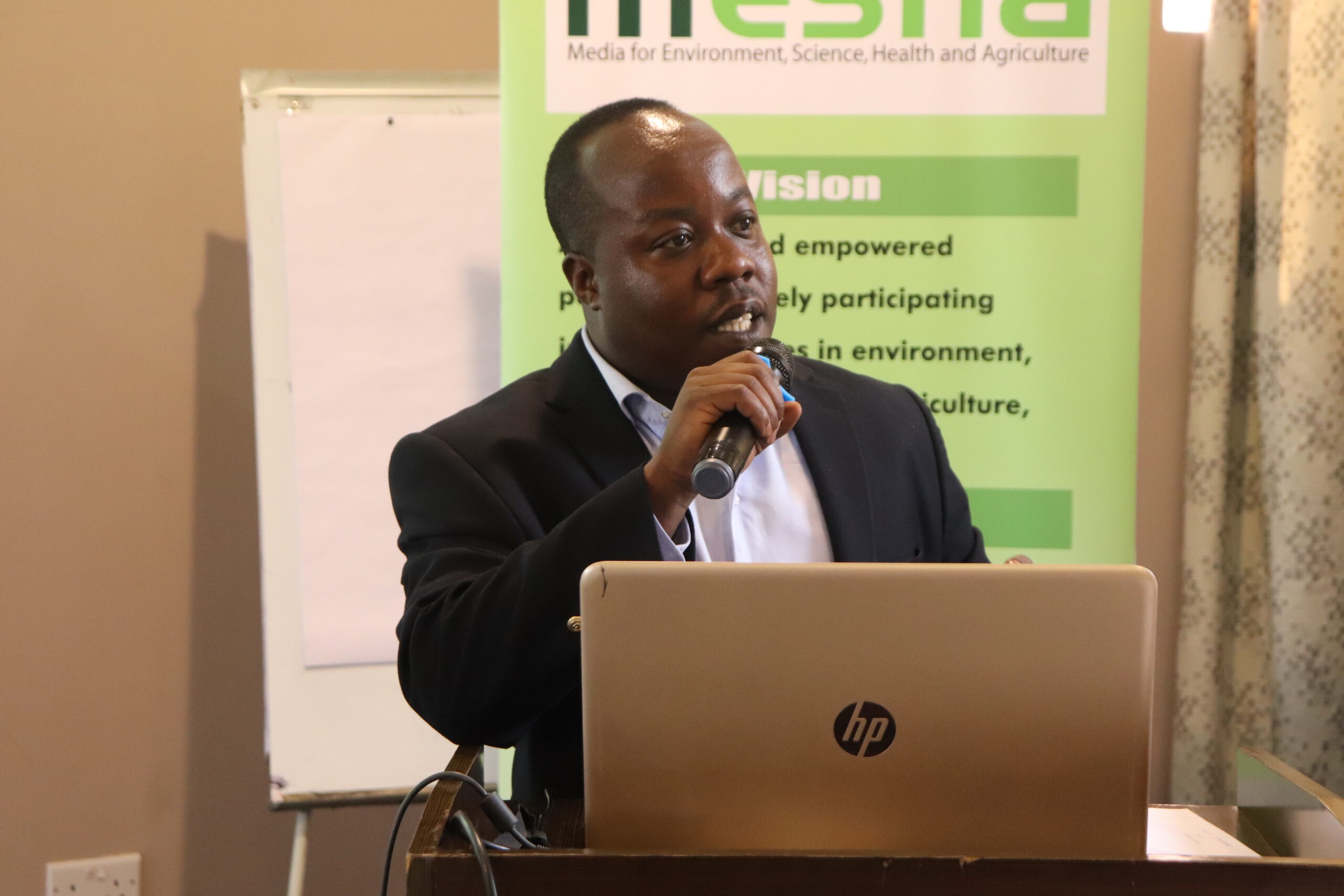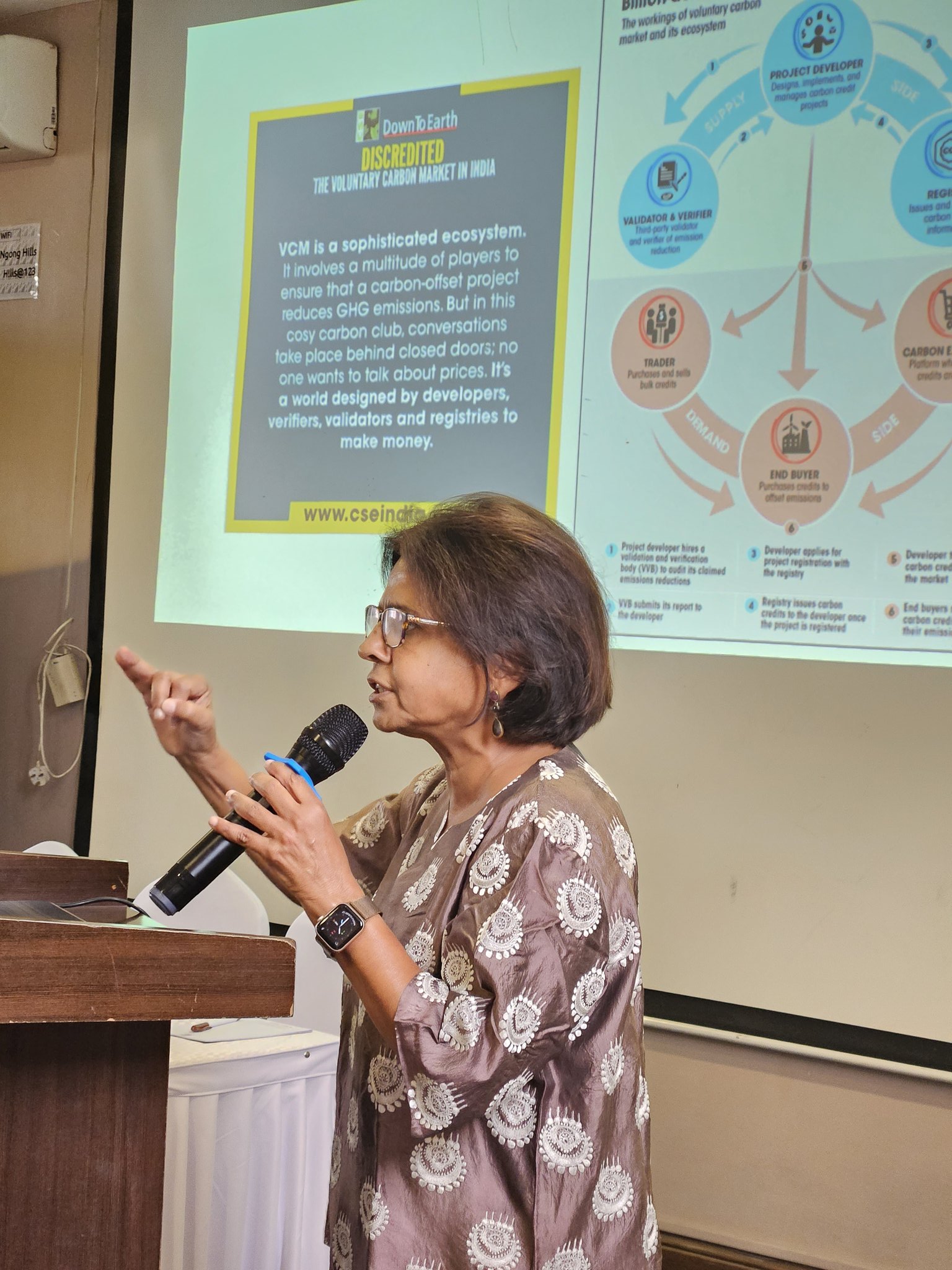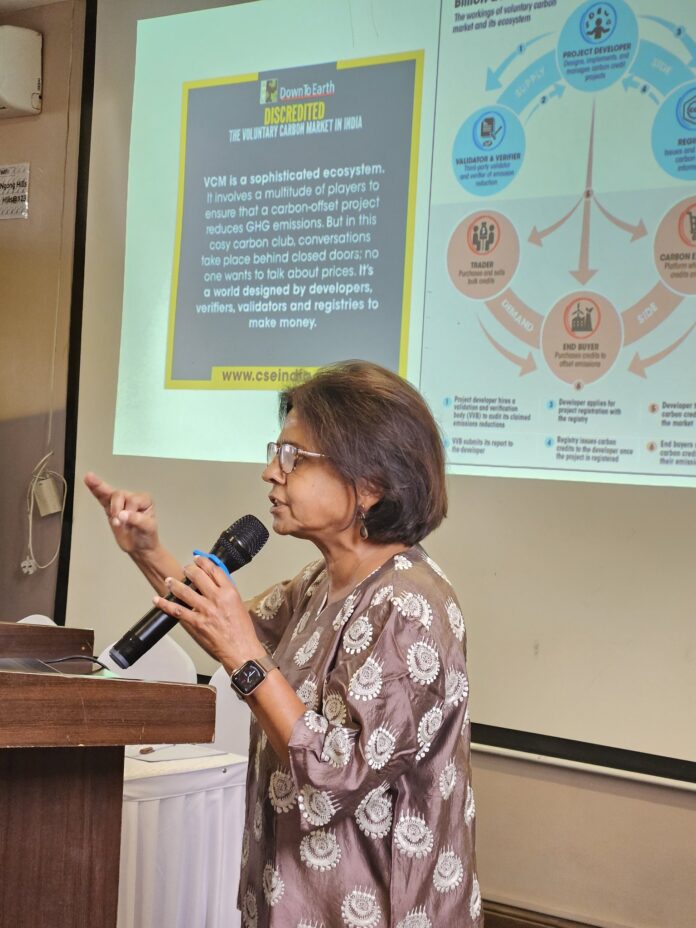By Juliet Akoth
Nairobi, Kenya: Carbon markets have been a hot topic and were a key focus area at the African Climate Summit in September due to the potential they hold in mitigating emissions. However, there are concerns among some researchers and experts regarding their effectiveness in reducing emissions and supporting local communities who relinquish their land for carbon-offsetting initiatives such as tree planting.
Speaking at a Nairobi Hotel during the launch of State of Africa’s Report 2023, by India’s Centre for Science and Environment (CSE) in association with Media for Environment, Science Health & Agriculture (MESHA), Powershift Africa’s senior renewable energy advisor Amos Wemanya faulted the carbon markets scheme for failing to adequately support communities. “Previous markets have not helped to build resilience for the communities on the frontline of climate crisis nor in cutting emissions that has brought us into this challenge,” he said.

Wemanya emphasized that communities are suffering and not benefiting as intended, with middlemen in the market diverting financial resources away from these communities towards consultancies and private developers.
Additionally, he highlighted how carbon markets are pushing communities off their land as they aim to establish conservation areas for carbon credits.”The carbon markets promote activities that do not support indigenous communities’ ways of livelihoods, for example, the large-scale growth of commercial forests for grading. These communities are then driven into new territories that they are not familiar with.”
On the other hand, Sunita Narain, Director General, CSE, India on her end acknowledged the potential benefits that can be accrued from the carbon markets by developing countries. ” Carbon market is a good tool to drive investments in our parts of the world but we seriously need to upscale investments in renewable energy and technologies,” said Sunita.
However, Narain also admitted that the current framing of the carbon market is not working for the people or the planet. According to her, there is a need for African governments to negotiate more for offsetting carbon. Failure of the markets will happen and it will happen at the expense of African people and the planet.
Sunita also proposed transparency and knowledge sharing about carbon trading by all stakeholders involved, including communities. ” Have African countries with carbon trading rules talked about the price, the rights of communities, the sharing of benefits with communities, and rules of Nationally Determined Contributions (NDCs)?” she posed.

In a positive move, Kenya demonstrated progress in regulating its carbon market. On September 1, 2023, Kenya enacted the Climate Change (Amendment) Bill, 2023 into law. This step aligns Kenya with its obligations under the Paris Agreement. The amendment introduces regulations related to carbon markets, allowing companies and individuals to trade and engage in climate financing activities in a regulated manner.
To safeguard community resources, the Act mandates that every land-based project conducted under its provisions must prioritize the economic, social, and cultural well-being of the community.
Addressing the pressing need for resources for resilience and mitigation, Africa requires substantial funding. Adaptation efforts could necessitate up to $50 billion per year by 2050 and $5 billion per year between 2026-2030.














